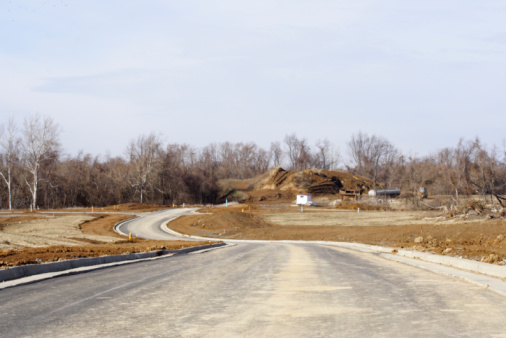Zoning and Agricultural Projects
Over the past century or so, farming has changed in some very significant ways. In Maryland and across the country, rural farmland has dwindled as the suburbs have expanded. At the same time, technological advances have allowed farmers to produce much more food out of the limited amount of land that still remains.
In recent years, a new trend has taken hold that has sparked renewed interest in farming. Consumer demand has risen sharply for locally-sourced food, and many grocery stores and restaurants promote the fact that they obtain their food from local farms. To keep up with the demand and to help clean up blighted areas, many major cities are incentivizing urban agriculture.
Last year, the city of Baltimore implemented a new zoning code which allows agriculture and farm stands in all of the city’s residential areas. The city also offers a 90% tax break for urban farmers who sell at least $5,000 worth of fruits and vegetables each year. In order to have an urban farm in Baltimore approved, however, you must present your plan to the zoning board for a hearing.
Zoning and Agricultural Projects in Maryland
Whenever you are considering a farming project in Baltimore or anywhere else in Maryland, it is essential to understand the local zoning regulations. This is true whether you are trying to establish an urban farm to provide locally-sourced fruits and vegetables to nearby supermarkets and restaurants, you are an existing farmer who wants to venture into a new type of operation, you are looking to set up a solar farm, or any other agricultural purpose. By knowing the local zoning ordinances and what it will take to get your project approved, you can save valuable time and money and help ensure a smoother approval process.
Many counties in Maryland have adopted comprehensive plans for their future growth. This often includes a mix of residential development along with the preservation of farmland. When residential development adjoins farming communities, conflicts sometimes arise. Residents complain about noise, odor, dust, and tractors slowing down traffic. Farmers complain about trespassing, vandalism, and increased traffic that makes it more difficult to move farming equipment around.
A county’s comprehensive plan is their overall vision for how they want their land to be used in the future. This plan is one of the first things a farmer should review before deciding if it is feasible to move forward with a new agricultural project.
The next thing for a farmer to review would be the county’s zoning district maps. These maps provide more detailed guidance, showing which areas are zoned for residential, commercial, agricultural, etc. Most county ordinances describe the zoning districts within the county along with a land use table or a list that tells which types of land uses are allowed.
Farmers should look carefully at the land use permissions for various zoning districts. Here is a link to the zoning use chart for Frederick County Maryland as an example, and here are what some of the codes on the county’s chart mean:
- P: This means that the principle use is allowed, but it is still subject to design regulations.
- PS: This means that the principle use is allowed, but it is still subject to site development plan approval.
- E: Principle use may be permitted as a special exception, but it is subject to site development plan approval.
- T: Principle use permitted temporarily as a special exception.
- X: Permitted for temporary use only.
In Frederick County, a blank indicates that use is not permitted under any circumstances. In other counties, an “X” may indicate not permitted, or the use may not appear in the table at all. If you are unclear about whether or not a certain farming activity is permitted, and under what circumstances it may be allowed, you should ask for a written interpretation from the county zoning officer or discuss the matter with your attorney (if you have one).
Speak with a Skilled Maryland Land Use and Zoning Attorney
If you are a farmer in Maryland who needs zoning approval for an agricultural project, you cannot afford to leave any detail to chance. If you run into fierce opposition from the zoning approval board, a group of neighbors, or anyone else, your project could end up getting denied. For this reason, it is always best to at least review your plans with a qualified attorney.
At the Law Offices of Matthew S Evans, III, we have extensive experience assisting clients in Maryland with all areas of real estate and construction law. We know the local zoning ordinances, land development codes, development regulations, and other requirements and restrictions, and we work closely with our clients to aggressively advocate for their interests and help ensure that their project becomes approved. For a personalized consultation with one of our attorneys, call our office today at 410-431-2599. You may also send us a message through our online contact form.





